Three of the finest directors in film history did the best work of their career in the nineties, but with that there was an explosion of new directors who were hugely gifted. What was remarkable was that twenty years earlier, these three directors were just emerging, and now they were the directors who had influenced the up and comers. I found it fascinating that directors who had emerged in the seventies were still dominating cinema with their artistry.
Steven Spielberg had his finest decade, beginning with the effects revolutionizing Jurassic Park (1993), which brought hyper-realistic dinosaurs thundering to the screen through the magic of CGI. Though the sequel was lame, really just more of the same, no one could deny the awe and majesty of the first. Incredibly, that same year, he threw away all his tricks and made a stunning work of art about the Holocaust that is his masterpiece, Schindler’s List (1993), which, in a word, is miraculous. For that film, he finally won his Academy Award for Best Director, and five years later was back winning his second for Saving Private Ryan (1998), which altered the look of combat sequences with its startling realism.
Scorsese would give us his finest film, Goodfellas (1990) as would Clint Eastwood with Unforgiven (1992). Quentin Tarantino exploded into movies with his crime masterpiece Pulp Fiction (1994), revolutionizing film in the nineties. Oliver Stone would direct three superb films in the decade, the best of them being JFK (1991), with the hyper-real Natural Born Killers (1994) not far behind, though mired in controversy.
And by the end of the decade, Paul Thomas Anderson had become a major voice in American cinema first with Boogie Nights (1997) and more so with the daring Magnolia (1999). It seemed that directors were taking risks again, even those best known for mainstream work, such as Ron Howard, who directed the superb Apollo 13 (1995). Former TV star Penny Marshall proved herself a major Director first with the medical drama Awakenings (1990) and more so with the nostalgic and wonderful A League of Their Own (1992). More and more women stepped behind the camera, the best of them being Jane Campion for the mesmerizing The Piano (1993). And actors continued to do fine work directing, Eastwood, Ron Howard, Robert de Niro and Leo Gibson among them. With that background, let’s delve into the best drama movies of the 1990s.
10. JFK (1991)

This was a tough call because Stone could also be here for Natural Born Killers (1994) or Nixon (1995), or certainly David Fischer should be considered for Fight Club (1991), but I promised to keep this to ten per decade. Stone explores every conspiracy theory there is, though his focus is on the government as being guilty for the assassination of President Kennedy that fateful day in Dallas. Stone explores how the day marked a loss of innocence in America, a sense that those in power were deceitful killers, taking the life of the young President. Using different film stocks, 8mm, 16mm, 35mm, video, newsreel, TV footage and of course that infamous Zapruder film of the killing that clearly displays there is no chance Oswald could have done it. Superbly put together, acted, directed, shot and cut.
9. Apollo 13 (1995)
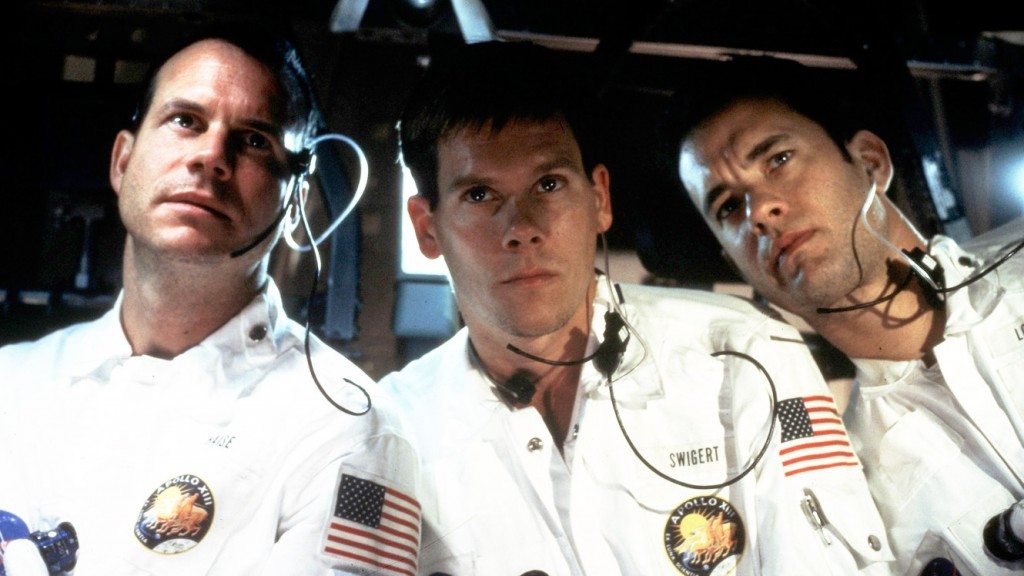
We know the story; it was headline news, and despite the events of the Apollo 13 disaster being well known, director Ron Howard manages to make a tension-filled film that is brilliant on every level. From the moment the craft takes off into space, we feel the impending sense of doom, and when Tom Hanks utters the words “Houston, we have a problem,” the picture becomes a tense, powerful masterpiece. What is fascinating is that Howard makes the scenes on earth as important as those in space with Ed Harris spitting out the words “Failure is not an option”. The performances of Tom Hanks, Harris, Bill Paxton, Kevin Bacon and Kathleen Quinlan are all sublime with Harris Oscar worthy for his work as Gene Kwanz. The effects are perfect, and the editing and sound are all as good as it gets.
8. The Silence of the Lambs (1991)
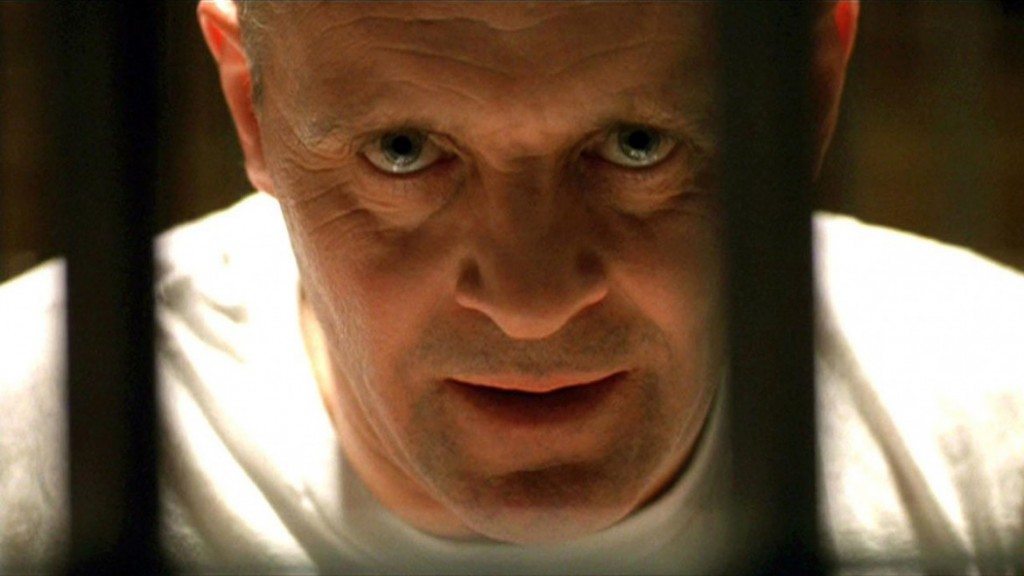
With a brilliant screenplay and two highly intelligent, gifted actors in the roles of their lifetime, how could Demme lose you might ask? The fact he does everything just right is a testament to his talents and trust in his actors. Jodie Foster is spiky and tough as an FBI trainee sent to interrogate a genius psychiatrist serial killer, Dr. Hannibal Lector portrayed with quiet fury by the great Anthony Hopkins. Watching Foster and Hopkins go toe-to-toe is an exercise that involves watching great actors at work. Hopkins creates the kind of killer we have never seen before, his intelligence unmeasurable, his cunning more so, his penchant for cruelty equal to both. Demme’s direction crackles with intellect and sensitivity, Foster is miraculous (watch her reaction while looking at photos of murdered girls), and Hopkins, eyes never blinking, fierce with genius, blazing with madness, will haunt your nightmares long after the film ends.
7. LA Confidential (1997)
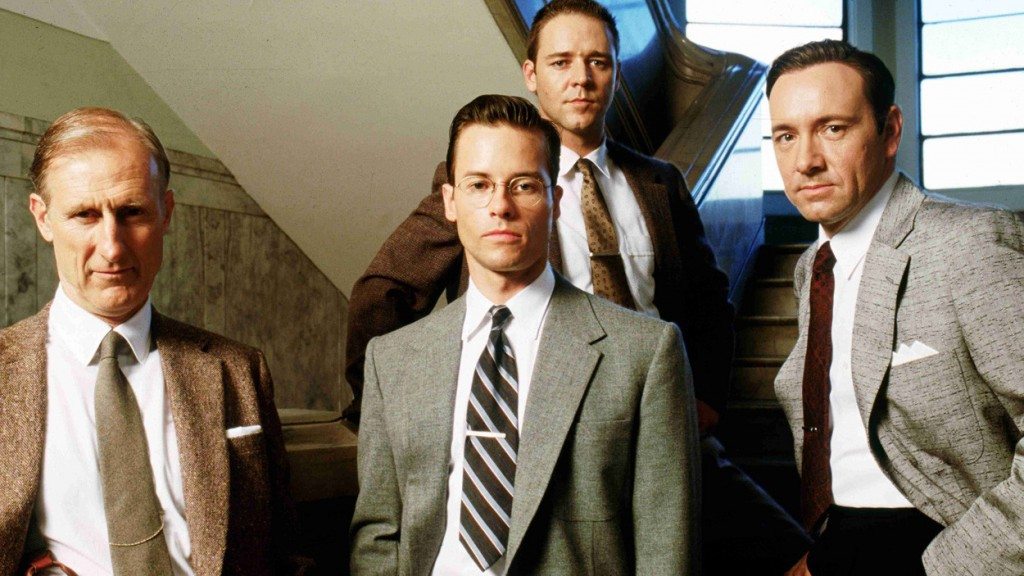
In its remarkable recreation of fifties Los Angeles, director Curtis Hanson does a splendid of showing the corruption and decay lurking under the sunshine and glitz of Hollywood. With an exceptional ensemble of actors, the story explores the reasons behind a slaughter in a late-night diner, as a crooked cop moves to take over the heroin Empire created by gangster Mickey Cohen. No, however, expects who the crooked cop is or how far he will go to achieve his deeds. Never forget that he name Rollo Tomasi, it is a clue to one cop who the killer is. Kevin Spacey is terrific as a long-term cop who is also a technical advisor to a popular TV show and loves it. Russell Crowe is superb as a brutal cop while Guy Pearce fine as an intellect who learns he must break rules. Kim Basinger won an Oscar as a hooker who looks like Veronica Lake and James Cromwell, perfect as someone you least expect to be what he is. Hanson has a firm, confident hand on everything within the film.
6. Magnolia (1999)

Knowing he had a bold, daring screenplay, Anderson has the immense wisdom to cast great actors in one of cinema’s greatest ensembles. Though Tom Cruise got and deserved the best reviews for his searing performance as a sex guru, the entire cast is flawless. Julianne Moore is at her best as a guilty trophy wife faced with her dying husband, William Macy is superb as a child star from a game show still cashing in on his fame, John C. Reilly and Melora Waters are outstanding as star crossed lovers, all of the somehow connected to the dying man, portrayed by Jason Robards. From the entire cast singing a mournful tune to the raining of frogs, the film is a masterful work. Read the signs in the bar, all of them, they are a clue to the frogs and their meaning.
5. Pulp Fiction (1994)
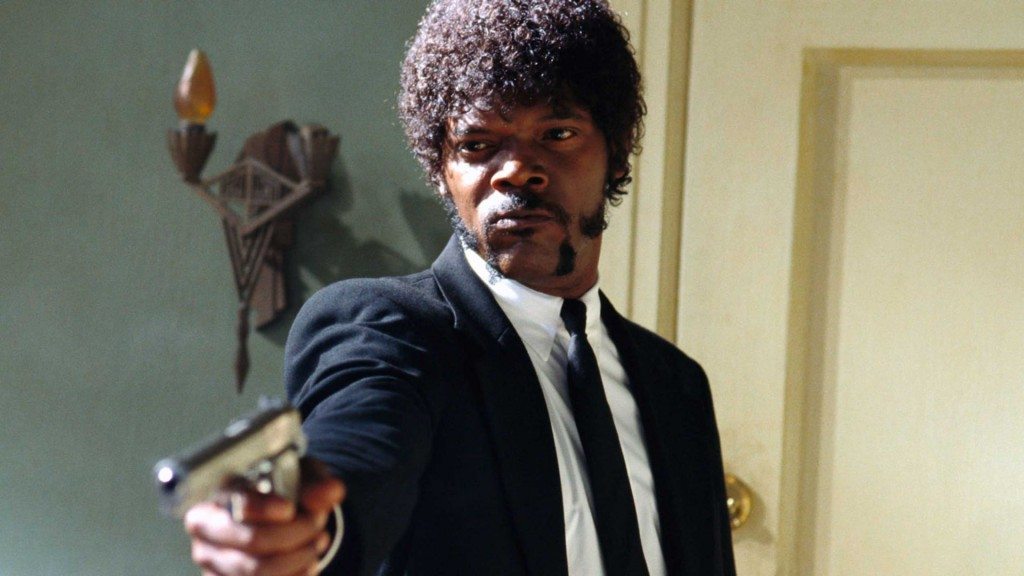
The moment the surfing guitar blares on the track, we know we are in a different universe, a world unlike anything we have seen before. Career criminals populate the film, a tough look at the underbelly of LA, and Tarantino writes incredibly original dialogue that is acerbic, funny and profane. John Travolta is drolly grave as a heroin-addicted hitman, Samuel L. Jackson is frightening as the Bible-spouting partner, Uma Thurman terrific as the moll of head honcho Ving Rhames, who ends up in a very bad situation with Bruce Willis, all brilliant as their paths cross and part. The film has an inner energy that seemed to bring energized cinema back in the nineties. Like So many who made a breakthrough masterpiece, he has never equalled it.
4. Saving Private Ryan (1998)
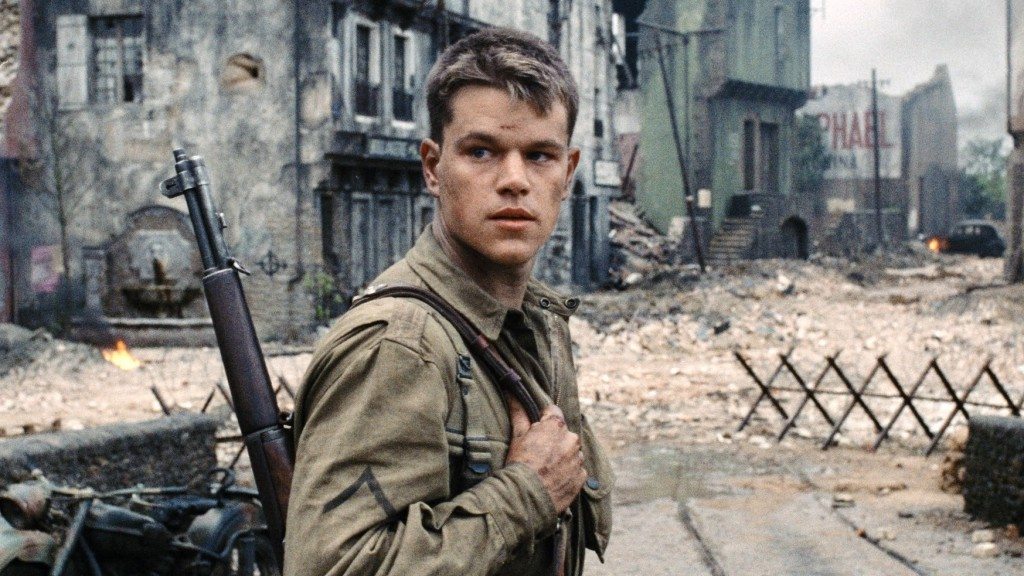
Just five years after his first Oscar win for Best Director, Spielberg won a second for this brilliant World War II epic that featured the most gruesomely realistic scenes of combat put on film. In many ways the film is as much about war films as it is the war, as a cross section of young Americans make up a platoon sent on a mission to find a young private who has lost all his brothers. Tom Hanks was Oscar nominated for his powerful performance as Captain Miller, leader of the young men, with Matt Damon very good as Ryan. The Cinematography by Kaminski is among the best ever in a film, and the effects, sound and editing are sublime. A brilliant, remarkable that was savagely robbed of Best Picture.
3. Unforgiven (1992)
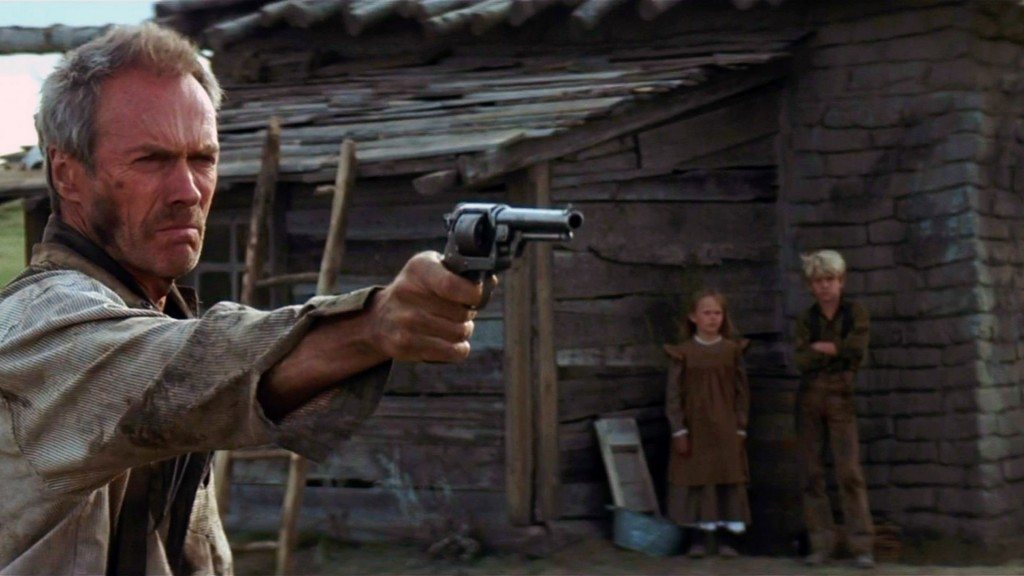
Eastwood had the patience and wisdom to put this film away for twelve years until he had aged into the role of murderous gunslinger Will Munney. A masterful Neo western, Eastwood made a profoundly powerful statement on violence and what a life of it does to a man’s soul. Strapping on the guns after years away raising a family, he heads off after his beloved wife dies to collect a bounty in hopes of giving his children a better life. It is there he finds the price of his previous life, seeing men like him, encountering the worst elements of himself face to face. Gene Hackman is downright terrifying as the crooked, vicious Marshall, who meets his match in Munney. A ferociously realistic depiction of the Old West, there is no honour in the death that happens here, it comes fast, often without warning and is usually immediate. At the centre of the storm is the fury of Will Munney, who in the great shootout scene makes clear everything said and written about him, good and bad is all true.
2. Goodfellas (1990)
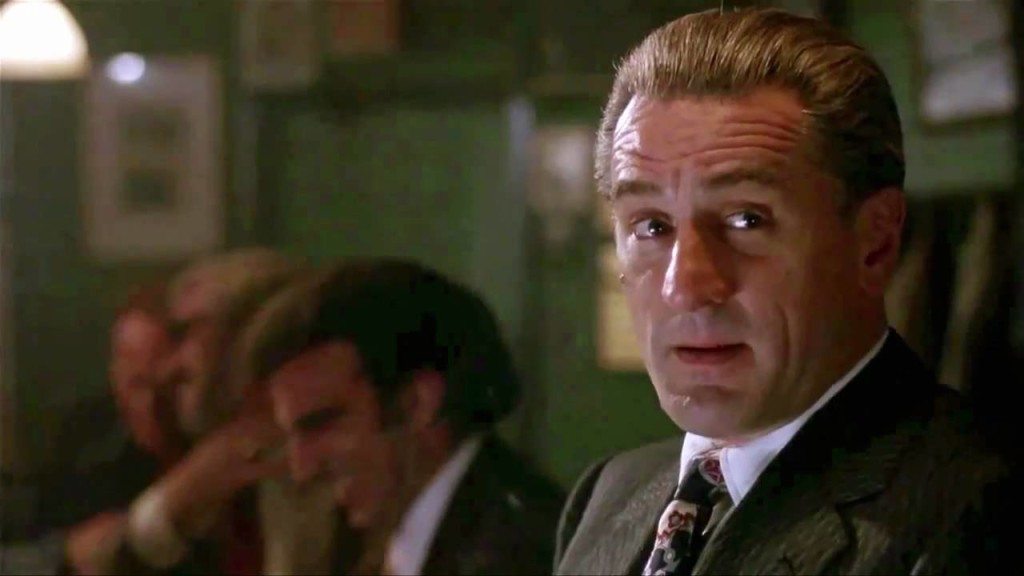
Though Raging Bull (1980) is widely considered the best film of Scorsese’s career, but I would place Goodfellas at the top of his filmography. With a wheeling camera that never ceases moving, giving the film a bouncy, jaunty energy that contradicts its serious, violent subject matter. And despite the fact we are getting an extraordinary glimpse into street level organized crime, we like what we see, even some of the characters. Much of that is due to the charisma of the actors, Ray Liotta, Robert DecNiro, Paul Sorvino, Lorraine Bracco and best of all, the frightening Joe Pesci. Murder happens swiftly and unexpectedly, with frightening realism, and we come to understand your friends can be your assassin. The film swept the major critic awards as it should have.
1. Schindler’s List (1993)
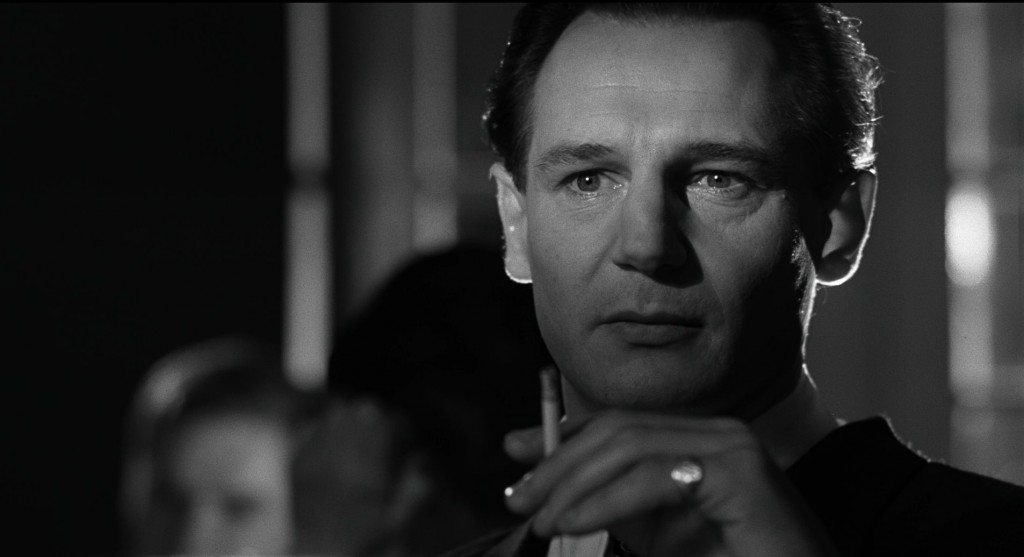
The master’s masterpiece. Delving deep into the impact of the Holocaust on those who lived it, Spielberg created one of the darkest films ever made yet oddly in this place of unspeakable horror, a film about hope. One man, a member of the Nazi party, protects eleven hundred Jewish workers who work in his factory. Seeing the Warsaw ghetto being evacuated,the slaughter of a people altars him in some way, and he is never the same. What he saw that day, the girl in the red coat and his encounter with her later, as she is pulled from a mass grave to be burned, is a crucible for him. The director through away his bag of cinematic tricks for this one, shot it hand held in stark black and white which plunged audiences into the Holocaust as they never had been before. Liam Nelson gives a beautifully enigmatic performance as Schindler, Ben Kingsley is quietly superb as the conscience of the film, and Ralph Fiennes, terrifying as Goeth, the dreaded Nazi. Spielberg’s greatest achievement, so far.
Read More: Best 90s Thriller Movies

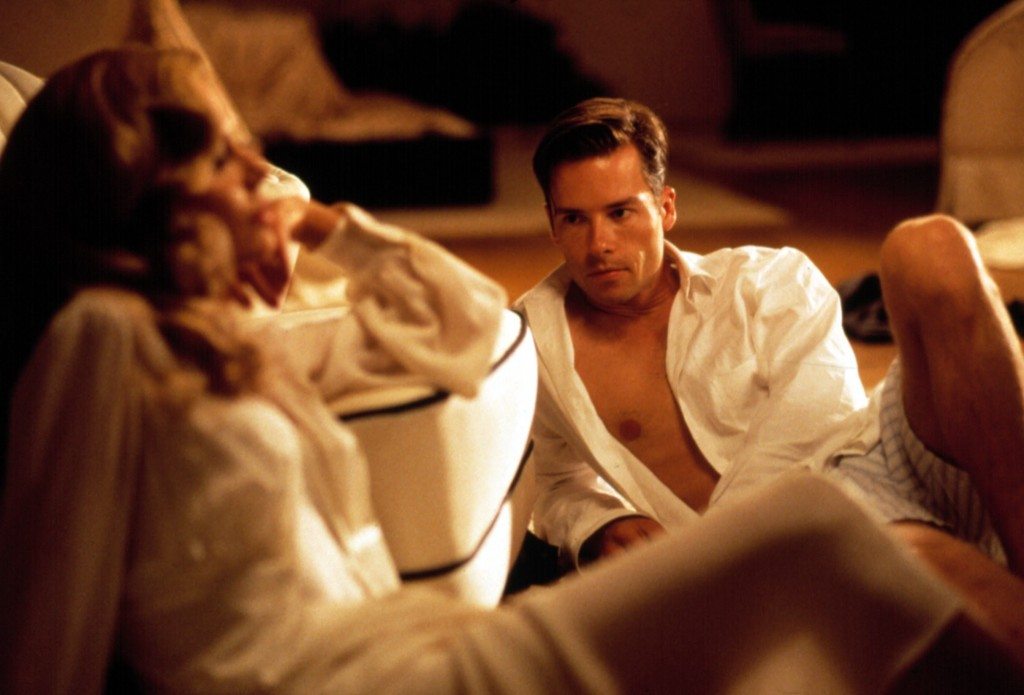
You must be logged in to post a comment.